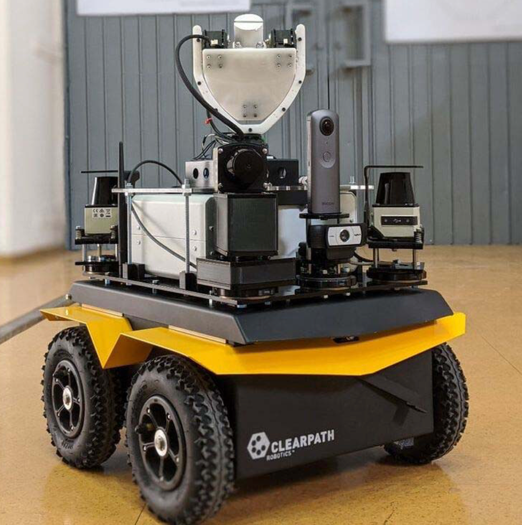ALACANDRA project to investigate robot radioactivity clean-up

Scientists from The University of 优蜜传媒 are to work alongside researchers from Lancaster University to investigate the best way to use robots to clean up radioactivity, following the awarding of a £1.49 million grant from the EPSRC.
The project, entitled 'Advancing location accuracy via collimated nuclear assay for decommissioning robotic applications' - or ALACANDRA - involves of the and of the , as well as Professor Malcolm Joyce and Professor James Taylor from Lancaster University.
It will explore how robots can be deployed into radioactive facilities, such as those on the Sellafield site, to better measure, map and locate sources of radiation.
Sending robots - such as the Jackal robot carrying a collimated gamma detector (pictured) - in to map radiological areas has two problems:
- Radioactivity is often dispersed, with contamination arising from leaks, splashes, tide marks in vessels and migrating into porous materials, yielding a 3D distribution in space. Radiation detector systems and imagers have difficulty with this.
- Contaminated places are often cluttered with process equipment, detritus and construction materials, which can cause the radiation to scatter and also absorb it. This influences the 'picture' and can influence how much radioactivity is thought to be present.
ALACANDRA will investigate how measurements made using on-board detectors can be interpreted to better understand the location and activity of radiation sources within the environment.
Specifically, the project will attempt to identify the transfer properties that govern the response of collimated radiation imaging systems when they are used to characterise radioactive contamination on board mobile robotic platforms.